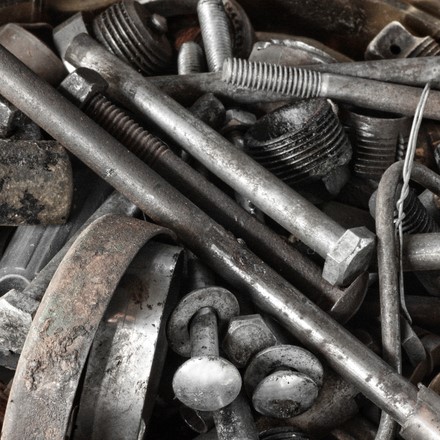Information on Cookies
To make the best use of our website, you'll need to make sure your web browser is set to accept cookies to ensure you receive the best experience.
For further information, please read our Cookies Policy.

Log In

The All-Party Parliamentary Group on Metal, Stone and Heritage Crime, in its latest report, revealed that metal theft costing UK economy half a billion pounds a year and has called on the Government to review the Scrap Metal Act.
The report from the APPG found that:
- Metal theft now costs the UK economy half a billion pounds a year and - £4.3bn since 2013.
- Up to 60 Organised Crime Groups are currently active - and account for the majority of metal theft crime.
- Thefts of catalytic converters soared from 10,049 in 2013 to 27,195 last year - a rise of 170 percent.
- Thefts involving lead increased from 5,947 to 6,446 over the same period, a rise of eight percent.
- In 2022 alone, one organisation suffered 334 incidents of cable theft - totalling losses of £5.3m.
- Commuters suffered 72,000 minutes/50 days of delay in 2022 because railway signaling or overhead cables, containing high-value copper, had been stolen.
- There were just 229 prosecutions between 2018 and 2022 for scrap metal dealer offences.
The report made ten recommendations to the Government, including recommendation five that called on the Home Office to lead a review of which organisation is most suitable to carry out Scrap Metal Dealer licensing.
In relation to this recommendation, the report authors wrote:
"Given the evidence garnered during the MSHC APPG evidence sessions and the desk-based research, it
is clear that the Scrap Metal Dealer Act 2013 is not working as it is currently written. Suitable checks
before issuing a new licence are not being carried out as a matter of course by the majority of local
authorities, neither are site visits. Moreover, it seems that no investigations are being undertaken when a dealer drops out of the licensing regime.
"Prosecution and sentencing data show that very few perpetrators of metal theft are being caught,
prosecuted or sentenced for metal crime – which includes metal theft and operating a metal recycling
site outside the bounds of the Scrap Metal Dealers Act. Furthermore, when the police services do
undertake targeted weeks of action alongside other enforcement bodies, the lack of data presented by
those taking part in these weeks of action suggests that few if any checks are made with regards to scrap metal dealer licensing. "
Commenting on the report, Andrew Selous, MP, the Chair of the APPG and the Second Church Estates Commissioner, said:
“Metal is ubiquitous in the built environment. Without metal, we would not have bridges, electricity, cars, phones or many of the other gadgets and infrastructure we use today.
“The numerous applications of metals make them valuable, yet their value makes them attractive to steal. As Second Church Estates Commissioner, I often hear reports of some of our most cherished churches having had the lead stripped off their roofs.
“But metal theft does not stop with churches; it is pervasive through society. Yet, when a metal theft is reported, it is often classified as a ‘non dwelling burglary’ which does not represent the true nature of the crime; a crime predicated on stealing the constituent metals. This has led to a knowledge gap of the true scale of metal theft affecting our nation.
“Our ‘Tackling Metal Theft’ inquiry has subsequently sought to close this knowledge gap by engaging with both the private and public sector and hearing from expert witnesses on their experiences dealing with metal theft.
“We found there are great efforts, by single actors to prevent and reduce metal theft, but that in parts of central and local government, metal theft is not prioritised as highly as it should be given its substantial cost to United Kingdom’s economy and its impact on our daily lives.
“The All Party Parliamentary Group on Metal Stone and Heritage Crime hope this report will act as the catalyst needed to ensure that we win the fight against metal theft.”
